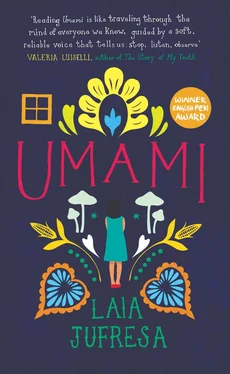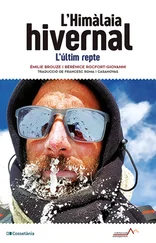*
Every now and then I take a trip to the little corner store, for beer or something, but Beto does my big shops, for which I’m very grateful. And I’m not just saying that in case I drop dead at my laptop. I’ve been thinking about this ever since Noelia died: Which of the neighbors is going to let people know if I kick the bucket? And who would they tell? The institute? And my colleagues, what would they do? Put me in a box with the institute’s initials on it? Bury me among some ruins like a national heritage piece? I doubt it. Whoever finds me will have to do no more than dump me, unceremoniously, out with the trash. Maybe I’ll start to smell. Me, who always scrubbed up so well! My guess is that Beto will be the first to get a whiff of me, when he brings the groceries. Hence why, even though I didn’t tell him it was for this reason, I gave him a set of keys. Whenever I hear him come in I go downstairs and offer him a beer — just because; because we’re alive —, and he almost always accepts. We sit out on the terrace overlooking the dead MM, where once upon a time the deep pink of the amaranth flowers swayed in the wind, and we make fruitless plans to pull up the dead plants and put in a barbecue or a small swimming pool. We chat about anything and everything until it’s time for him to collect his daughter from ballet, or whatever it is. Beto talks to me and asks me questions; he’s generous and takes an interest. Now that I think about it, Beto is one of very few men I’ve met in my life who I feel I can trust. Maybe because his wife left him. Or maybe that’s why she left. Deep down, I think I’m one of those types, too. But maybe it’s just my ego talking, and really I’m a person who inspires pure indifference. Better indifference than repugnance, of course, but it’s not as honorable as trust. Not a callous indifference, not at all, but rather the natural product of years spent trying to go by unnoticed. Add chronic shyness to a good marriage and a series of solitary habits and you’ve got a perfect recipe for disappearance. You turn into a kind of Casper the Ghost: friendly but one hundred percent dispensable. As a boy, if anyone asked me which magic power I’d choose, I always went for time travel. I wanted to see without being seen. And really I think that this is what defines all anthropologists: a natural tendency to observe and a healthy dose of curiosity for all things human, but without ever reaching the levels of sensibility of the artist, the solemnity of the philosopher, or the opportunism of the lawyer. Our healthy curiosity isn’t quite the systematic, slightly obsessive rigor of the spy or the scientist, and we’re far from boasting the deductive inventiveness of the sociologist, or the novelist’s discipline. But I guess you could say we have a little of all these things, if you’re a glass-half-full kind of guy.
*
After a few days of rigorous observation I can confirm that a ) people still dodge me on the street (they don’t look at me, but they do still step out of my way, which means, physically speaking at least, I’m still perceptible), and b ) for the first time this year I’m not thinking about dying soon, not now I can feel a project coming on (albeit one within the limits imposed by permanent grief). I have no intention of dying, not now that I’ve teamed up with Nina Simone, AKA Brown Sugar, and, for the first time in forty years, I’m daring to write without footnotes.
*
This is my new life on sabbatical: I don’t set a morning alarm, and my eyes open automatically sometime between eight and nine. Considering the horror stories I was told as a boy, it seems I’m one of the lucky ones. Or maybe it’s not that all old folk get insomnia, just that they like to exaggerate. If I had a kid to guilt-trip about how early I rise, believe me I would.
Once up, I shower, get dressed, and make myself a coffee. I’ve gone back to drinking it how I did when I was a pretentious student and believed that the devil was in the detail, as long as that detail was European: from an Italian stovetop espresso maker, straight. Noelia liked coffee from the machine, and since it didn’t taste of anything, we consumed it in quantities wholly inappropriate for people our age.
After that I eat a banana or an egg, depending on supplies. I dress The Girls, and all three of us sit in the study, me in front of Nina Simone. Then I spend the morning writing intensively, making sure not to consult any sources other than my heart and my head. I take a break at midday to have a drink in the Mustard Mug, and raise a toast with Linda. Then I grab something to eat from one of the three stands along my block (because I’ve realized cooking for one is about as much fun as poking yourself in the eye with a stick). I’ve been plodding along like this for three weeks. I write intensively but also delete a lot because I want to do it properly: if I can’t tell everything in order, I want at least to get out the important stuff.
A couple of days ago I gave the document a title page. In big letters, in the middle of the page, I wrote, Noelia. Then I added her surnames, and then I deleted them again. Her name isn’t big enough for her. I wrote, Umami . It’s a bit of a daft title because I’ve already written a book with that name, one that contains purely food-anthropological theory. But for now I think I’ll leave it like that, because, at the same time, Umami is the perfect title. Trying to explain who my wife was is just as necessary and impossible as explaining umami: that flavor that floods your taste buds without you being able to quite put your finger on it. Complex and at the same time clean and round, just like Noelia was: as distinguishable as she was unpredictable. Umami is the perfect title because nobody would understand it, just as I never fully understood Noelia Vargas Vargas. Maybe that’s why I never got bored of her. Maybe that’s all love is. Maybe that’s all writing is: an attempt to put someone in words, even when you know full well that that person is a kaleidoscope: their thousand reflections in the eye of a fly.
From time to time I read some of my passages out loud. They tend to be as rhetorical and inadequate as the one I’ve just written, and on the whole I delete them. You might think that if I’m reading parts out loud it’s for The Girls’ benefit, but I’ve not entirely lost the plot. Not yet. I’m quite aware that if I die it won’t be The Girls who raise the alarm.
By the way, in case I do die, I’d like to leave something in writing:
To whoever finds me and has to go to the trouble of throwing me out with the trash:
THANKS, buddy!
And also: I hereby hand you custody of The Girls.
They are to be cleaned with a damp cloth.
Do not, under any circumstances, submerge them in water.
Cheers!
*
An anecdote came to mind when I wrote ‘AKA’ a few pages back. Back in the eighties, I was invited by the Complutense de Madrid (which wasn’t as bad then as it is now, but worse) to give a course on pre-Hispanic diets, creole gastronomic fusion, milpas : all those things I can teach with my eyes closed. I slipped a selection of dry, multicolor corncobs through customs to spark the students’ interest and stayed in Madrid for one complete semester, during which, for the first and last time in our lives together, Noelia and I wrote each other letters. Noelia kept all of mine, and one day last year, when she was already very ill, she asked me to read them to her. At some point I read out a passage where I’d used the word ‘knockout’.
‘What?’ said Noelia.
‘Knockout,’ I said slowly, trying to improve my lousy English pronunciation.
‘Yes, I heard you, but I don’t know what that is. Like in boxing?’
Читать дальше












